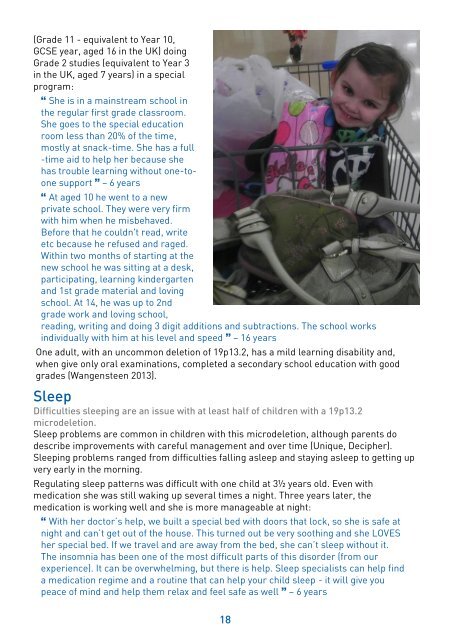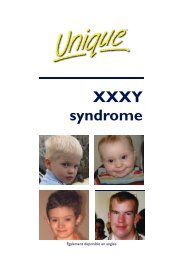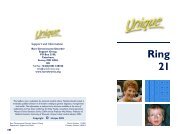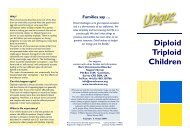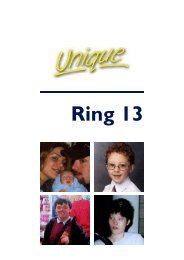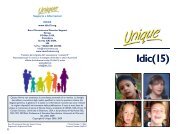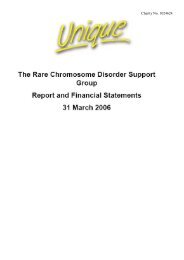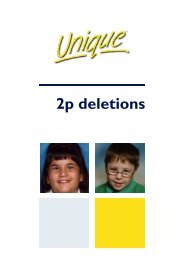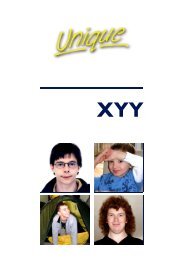19p13.2 microdeletions - Unique The Rare Chromosome Disorder ...
19p13.2 microdeletions - Unique The Rare Chromosome Disorder ...
19p13.2 microdeletions - Unique The Rare Chromosome Disorder ...
You also want an ePaper? Increase the reach of your titles
YUMPU automatically turns print PDFs into web optimized ePapers that Google loves.
(Grade 11 - equivalent to Year 10,<br />
GCSE year, aged 16 in the UK) doing<br />
Grade 2 studies (equivalent to Year 3<br />
in the UK, aged 7 years) in a special<br />
program:<br />
She is in a mainstream school in<br />
the regular first grade classroom.<br />
She goes to the special education<br />
room less than 20% of the time,<br />
mostly at snack-time. She has a full<br />
-time aid to help her because she<br />
has trouble learning without one-toone<br />
support – 6 years<br />
At aged 10 he went to a new<br />
private school. <strong>The</strong>y were very firm<br />
with him when he misbehaved.<br />
Before that he couldn't read, write<br />
etc because he refused and raged.<br />
Within two months of starting at the<br />
new school he was sitting at a desk,<br />
participating, learning kindergarten<br />
and 1st grade material and loving<br />
school. At 14, he was up to 2nd<br />
grade work and loving school,<br />
reading, writing and doing 3 digit additions and subtractions. <strong>The</strong> school works<br />
individually with him at his level and speed – 16 years<br />
One adult, with an uncommon deletion of <strong>19p13.2</strong>, has a mild learning disability and,<br />
when give only oral examinations, completed a secondary school education with good<br />
grades (Wangensteen 2013).<br />
Sleep<br />
Difficulties sleeping are an issue with at least half of children with a <strong>19p13.2</strong><br />
microdeletion.<br />
Sleep problems are common in children with this microdeletion, although parents do<br />
describe improvements with careful management and over time (<strong>Unique</strong>, Decipher).<br />
Sleeping problems ranged from difficulties falling asleep and staying asleep to getting up<br />
very early in the morning.<br />
Regulating sleep patterns was difficult with one child at 3½ years old. Even with<br />
medication she was still waking up several times a night. Three years later, the<br />
medication is working well and she is more manageable at night:<br />
With her doctor’s help, we built a special bed with doors that lock, so she is safe at<br />
night and can’t get out of the house. This turned out be very soothing and she LOVES<br />
her special bed. If we travel and are away from the bed, she can’t sleep without it.<br />
<strong>The</strong> insomnia has been one of the most difficult parts of this disorder (from our<br />
experience). It can be overwhelming, but there is help. Sleep specialists can help find<br />
a medication regime and a routine that can help your child sleep - it will give you<br />
peace of mind and help them relax and feel safe as well – 6 years<br />
18


